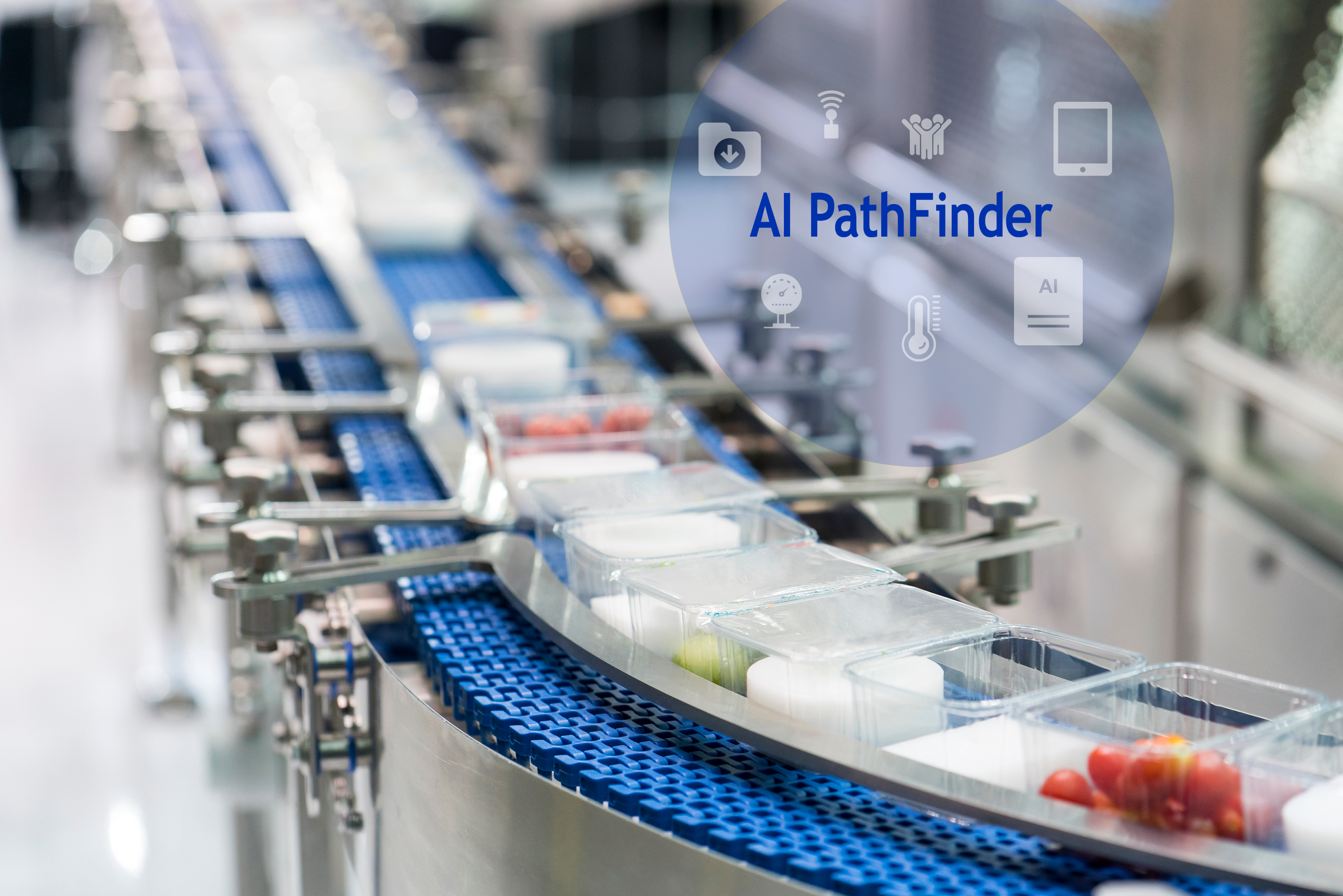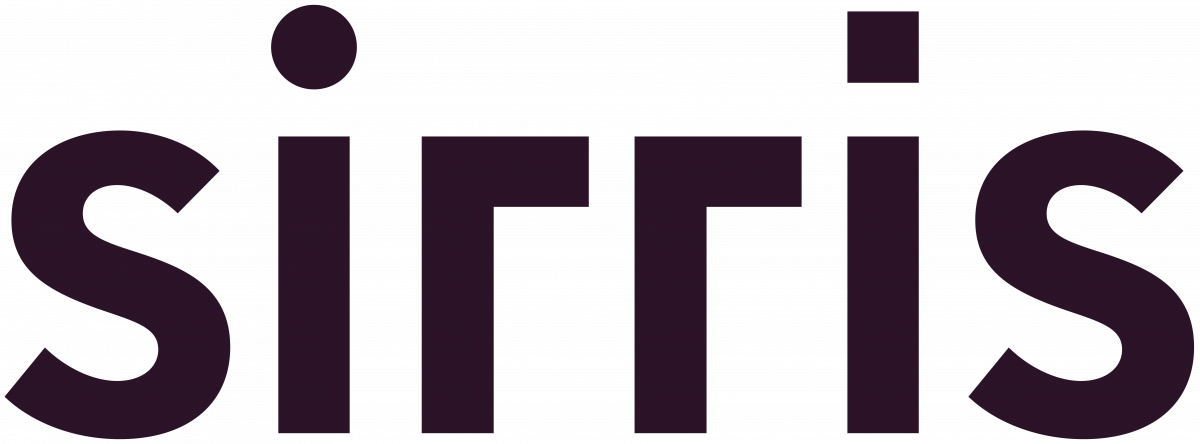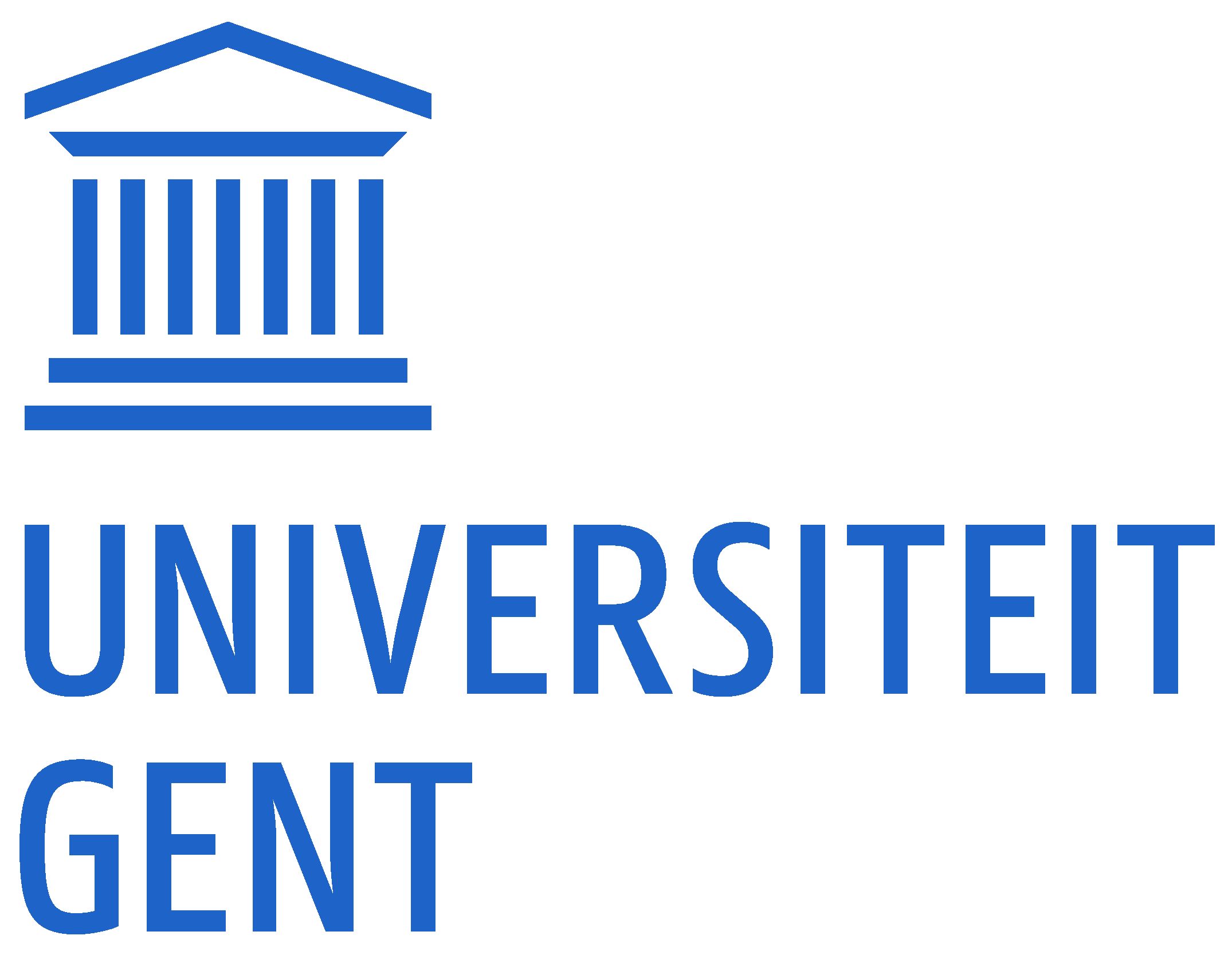AI PathFinder
With support of:


The overall goal of the AI PathFinder project is to support Flemish food companies in the development of their AI strategy, thus accelerating the concrete adoption of AI in their activities.
Why this project?
Most food companies are aware that a digital transformation is necessary in order for them to grow and remain competitive. Many companies face challenges linked to capturing the right data, identifying their key data requirements and processing data correctly. They therefore struggle to choose from the vast array of Artificial Intelligence (AI) capabilities. With the exception of large companies, food companies do not have sufficient in-house expertise in all the different digital capabilities. Are you keen to use AI but perhaps you are not sure how? AI PathFinder has the answer!
Methodology and expected results
Through this project, we want to explore whether, and if so how, AI can provide added value. To do so, the project starts by mapping the needs and challenges of food companies. It then explores how machine builders, technology providers and food companies can successfully collaborate to enable future AI projects. It is a collective research, development and dissemination project (COOCK type) in which we disseminate the knowledge we build within the broader target group.
Through the results of this project we aim to lower the threshold to the implementation of Artificial Intelligence (AI) and verify whether AI is indeed the best solution. The AI maturity scan allows food companies to check their current readiness for AI. In addition, the insights from the proofs of concept and the demo at VEG-i-TEC reveal what food companies need, allowing machine builders and technology providers to better align their products and services to them. In parallel with the project, you can always contact us to jointly develop an idea.
Target group
It goes without saying that to develop AI solutions you need data. The availability of this data is important for food companies to improve their processes and product quality. That is why machine builders and technology suppliers have been involved in the project.
Technology implementations in the food industry are often not plug-and-play, so we want to engage all stakeholders in our knowledge building efforts around the possibilities of Artificial Intelligence.
Specifically, we aim to achieve the following:
- The development of an AI maturity scan and generic roadmap for AI implementation tailored to food companies
- The setting up proofs of concepts illustrating the applicability of AI in the food industry
- The development of a demo case in the pilot plant for the potato and vegetable sector, VEG-i-TEC, in which we:
- document our insights on the AI case approach
- highlight obstacles from which stakeholders can learn
There are several ways to access the results (in the section ‘Keen to join?’).
Project partners
Flanders’ FOOD manages and coordinates the project. The project is executed by:
- Imec
- Sirris
- Ghent University
- Howest University of Applied Sciences
- VEG-i-TEC

Afbeelding 1: Het AI-maturiteitsmodel bestaande uit zes fases. Bron: Schuh G. et al., Industrie 4.0 Maturity Index - Managing the Digital Transformation of Companies. acatech STUDIE, 2020.
Pilootcases binnen VEG-i-TEC
Binnen de pilootinfrastructuur VEG-i-TEC werden twee demonstratiecases uitgewerkt om het potentieel van AI in de voedingsindustrie tastbaar te maken:
- Case 1: Procesoptimalisatie van de blancheur: Met behulp van AI werden de procesparameters van de blancheur automatisch bijgestuurd. Dit zorgde voor een stabiele concentratie van suikers en zetmeel, wat leidde tot een constante productkwaliteit.
- Case 2: Voorspelling van geurhinder: In deze case werd onderzocht of AI ingezet kan worden om geurhinder te voorspellen. Er werd getracht een AI-model te ontwikkelen, maar bij de opzet werd duidelijk dat er momenteel geen geschikte geursensor beschikbaar is die deze specifieke geur betrouwbaar kan detecteren.
Inspirerende voorbeelden uit de sector
Tot slot werd een overzicht opgesteld van diverse AI-toepassingen binnen de voedingsindustrie. Deze cases dienen ter inspiratie voor andere bedrijven en tonen de brede waaier aan mogelijkheden die AI te bieden heeft binnen de sector.
Toegang tot de projectresultaten
De AI-checklist en het stappenplan zijn niet vrij beschikbaar, maar worden binnen het projectconsortium gebruikt als inhoudelijke basis voor Masterclasses en andere begeleidende activiteiten.
Wat wél beschikbaar is, is de AI PathFinder-gids, die je kan downloaden. Deze gids biedt inzicht in de zes stappen richting succesvolle AI-integratie en inspireert met praktijkvoorbeelden uit de voedingsindustrie.
Download de AI PathFinder-gids
Daarnaast zijn er twee webinars beschikbaar die dieper ingaan op de demonstratiecases bij VEG-i-TEC:
Webinar: De kracht van AI en digitalisering binnen VEG-i-TEC
Ontdek hoe AI wordt ingezet voor procesoptimalisatie in de voedingsindustrie.
Klik hier om de webinar te bestellen!
Webinar: Ongewenste geuren in productieprocessen
Waar staan we in de zoektocht naar een geschikte geursensor? Een stand van zaken rond AI-toepassingen voor geurdetectie.
Klik hier om de webinar te bestellen!
Doelgroep
Voor de ontwikkeling van AI-oplossingen heb je natuurlijk data nodig. De beschikbaarheid van deze data is belangrijk voor voedingsbedrijven om hun processen en productkwaliteit te verbeteren. Daarom werden machinebouwers en technologieleveranciers mee betrokken in het project. Deze bedrijven vormen dan ook de doelgroep en zijn voor hen bestemd.
Projectpartners
Flanders’ FOOD beheert en coördineert het project. De uitvoering is in handen van:
- Imec (Kris Van de Voorde)
- Sirris (Christophe Michiels en Jakob Kesteloot)
- Universiteit Gent - VEG-i-TEC (Imca Sampers)
- Hogeschool West-Vlaanderen (Bart Leenknegt)
Contact

From apple tree to innovation: meet B3ET

Sustainable animal feed from sweetcorn cobs: meet Trotec








